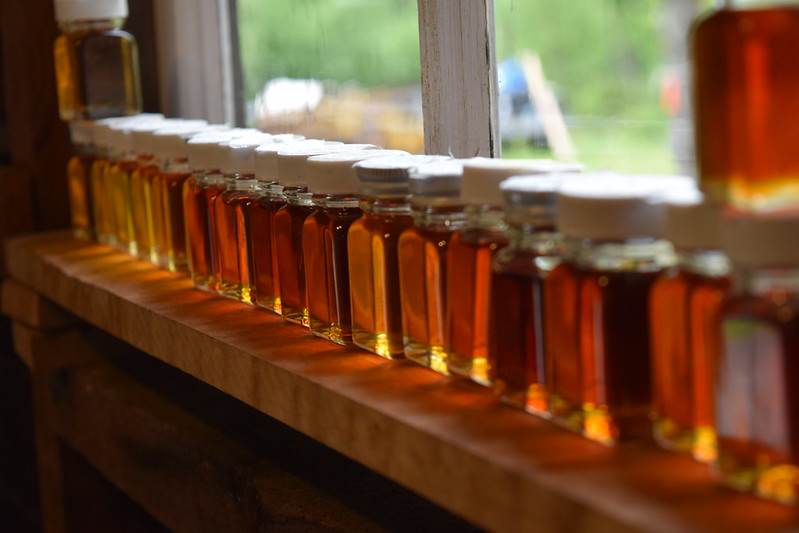Search Results
Results for: 'Time Temperature Abuse'

Autumn colors in leaves of maple trees is an annual phenomenon that is highly prized for its beauty and is also economically important. As day length shortens, the tree stops making new green chlorophyll pigment while the chlorophyll already in th...

International Maple Syrup Institute
The International Maple Syrup Institute (IMSI) was founded in 1975 to promote and protect pure maple syrup and other pure maple products. Its mission remains largely unchanged: The organization provides an important international framework for com...

As late summer progresses so-called late-season defoliators are beginning to become visible in Vermont woods. Two such insects are maple leaf cutter and maple trumpet skeletonizer. The first report of damage from maple leaf cutter was in 1911 when...

Some producers use membrane separation (called "reverse osmosis" or simply "RO" within the maple industry) in addition to evaporation with heat. In this process, sap is forced through membranes that have pores which are large enough for water to p...

Sugar makers rely on healthy, abundant maple trees to provide sap each spring. Taken together a group of maple trees managed for sap collection is called a sugarbush. Developing a healthy, productive sugarbush takes time and effort. Forests are hi...

The recent period of expansion in the maple industry has seen both established operations grow and many new operations start from scratch. Some real estate listings of land include estimated potential taps. But how many of those taps are actually ...

In Vermont, Grade A maple syrup is divided into four distinct color classes. Those classes are Golden, Amber, Dark and Very Dark. The lightest grade of syrup, Golden, has the most delicate flavor. A lot of the time it will be made at the beginning...

Compared to the relatively simple composition of maple sap, maple syrup has over 130 different identified flavor and aroma compounds. The predominant classes of flavor compounds are phenolics, pyrazines, and carbonyl-based compounds. Typically, li...

Traditional Collection Methods
Traditional methods of sap collection have changed over time. Initially, Native Americans created gashes in the stem, and directed sap into wooden or bark vessels. Early spouts were created by hollowing out small twigs, which were inserted into ta...